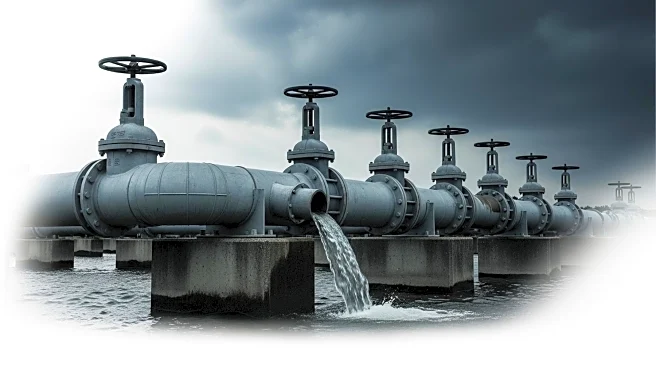What's Happening?
An analysis has revealed systemic corruption in flood control projects, highlighting widespread issues of graft and mismanagement. The report details how corruption in government, both individual and collective, has led to inefficiencies and failures in public infrastructure projects. Factors such as low salaries, weak moral standards, and bureaucratic deficiencies contribute to this corruption. The analysis points to the negative impact of corruption on economic growth, investment, and public trust, emphasizing the need for reforms to address these systemic issues.
Why It's Important?
Corruption in flood control projects has significant implications for public safety and economic development. It undermines the effectiveness of infrastructure meant to protect communities from natural disasters, leading to increased vulnerability and potential loss of life and property. The issue also affects investor confidence and economic growth, as corruption deters investment and increases the cost of doing business. Addressing these challenges is crucial for ensuring sustainable development and improving public trust in government institutions.
What's Next?
Efforts to combat corruption in flood control projects will require comprehensive reforms and increased transparency in government processes. Strengthening anti-corruption measures and enhancing accountability mechanisms are essential steps in addressing these issues. Civil society and media play a critical role in advocating for change and holding officials accountable. The analysis suggests that sustained political will and civic engagement are necessary to dismantle corrupt networks and restore public trust in governance.








